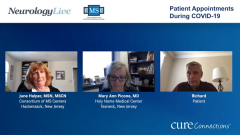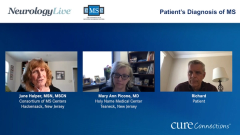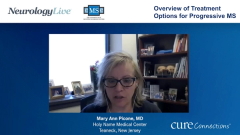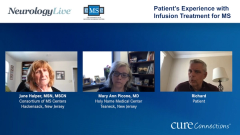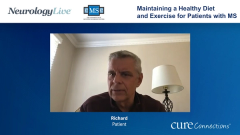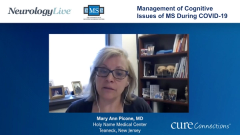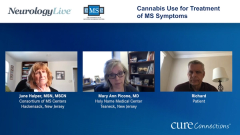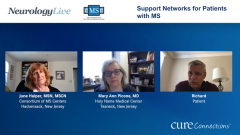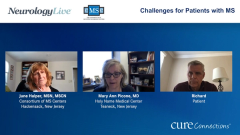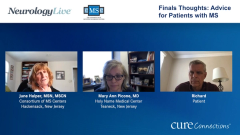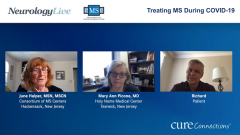
Final Thoughts: Advice for Patients With MS
Final thoughts from participants on accepting help from others and listening to your body when you feel something is not right with multiple sclerosis.
Episodes in this series

June Halper, MSN, MSCN: Richard, we’ve reached the end of our time together. I was wondering if there are any closing words that you’d like to share.
Richard: First, thank you for this opportunity. I wanted to return to the topic of support. Initially, I didn't accept a lot of support. I thought I could get it done. I thought, “We’ll get through this.” Then over time, you start realizing there are lovely people out there willing to help you. Accept the support. Take the support. If somebody is willing to drive you to an appointment, accept their help. As Dr Picone said, driving is a problem, especially early in the morning if you experience fatigue. Accept the support. It makes life a lot easier if you’re just willing. If people are honestly asking, “How can I help you?” tell them. It makes so much of a difference. If they ask, “Can I shovel your driveway?” That would be a huge help to me. Thank you. Anything like that. If we start accepting help, it makes our lives that much easier.
June Halper, MSN, MSCN: Absolutely. Dr Picone, I know you’ve been working in MS [multiple sclerosis] for many years and have done a fantastic job. Congratulations, again, on your new certification. Do you want to say something before we conclude?
Mary Ann Picone, MD: What Richard said is key: accepting the help. I tell patients that they know their bodies better than anybody. They know when something isn’t right. Even with the initial diagnosis of MS, if you feel that something is wrong and you haven’t gotten the right help, seek out a doctor. Go to an MS center. There are therapies out there. We’re very fortunate. It’s a different time for MS care in 2021 than it was in the early 1990s. It’s tremendously different. There’s so much. I tell patients that if 1 medication may not work for you, there’s always a different option that we can try. We’re partners in this. Along with the MS therapies, you also have to work with me on taking care of yourself. As Richard said, reach out for help and be able to accept it if you need it.
June Halper, MSN, MSCN: I really enjoyed talking to both of you today. I want to thank our audience for watching this NeurologyLive® Cure Connections®. If you enjoyed this program, please subscribe to our e-newsletter to receive information about upcoming programs. Dr Picone and Richard, thank you so much for this time together. I learned a lot, and I hope people out there are learning a lot as well. Be well, and be safe.
Mary Ann Picone, MD: Thank you, June.
June Halper, MSN, MSCN: Take care of yourselves.
Richard: Thank you so much.
Transcript Edited for Clarity
Newsletter
Keep your finger on the pulse of neurology—subscribe to NeurologyLive for expert interviews, new data, and breakthrough treatment updates.

